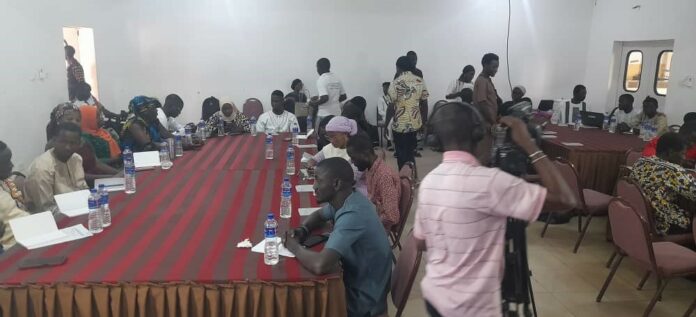By: Adama Sanneh
Peace Hub The Gambia has initiated a three-day capacity-building training for the National Youth Council and civil society organizations on the development of the first-ever national action plan on youth, peace, and security in The Gambia. In collaboration with GIZ and the African Union office, the training aims to equip relevant stakeholders with the necessary knowledge to effectively participate in the development of the national action plan on youth, peace, and security.
Co-founder and National Programs Coordinator of Peace Hub The Gambia, Bakary Sonko, emphasized the importance of training stakeholders with the requisite knowledge to develop the national action plan. He mentioned that The Gambia is set to become the fourth country globally to have a national action plan, having ratified the United Nations Security Council resolutions 22:50, 24:19, and 35:25 respectively. He stated, “The training is intended to capacitate and prepare young people and stakeholders on the exact processes involved in developing a national action plan. The National Action Plan is a tool to ensure the implementation of the government’s commitment to international law.”
Sonko stressed the importance of adequately equipping those responsible for policy implementation to advance the regularization of policies. He explained, “The training will unfold in two phases: this week, we will commence capacity-building training with CSOs, starting today, and next week, we will conduct training with the national assembly members who are crucial stakeholders in the NAP development process.”
The CSOs will be mandated to critique the policy’s content to ensure its alignment with the realities of the Gambian people. Cherno Gaye, Program Manager at Activista The Gambia, highlighted the significance of youth participation in developing such a document. He remarked, “The Gambia is undergoing a transitional justice process, and the peace-building process is a significant aspect of it. I believe this training will empower us young people from civil society organizations to actively participate in developing this document and articulate the concerns of young people regarding its development.”
Gaye also underscored the timeliness of the training, noting that it goes beyond imparting knowledge to participants, enabling them to represent the voices of young people who may not be part of the training.




